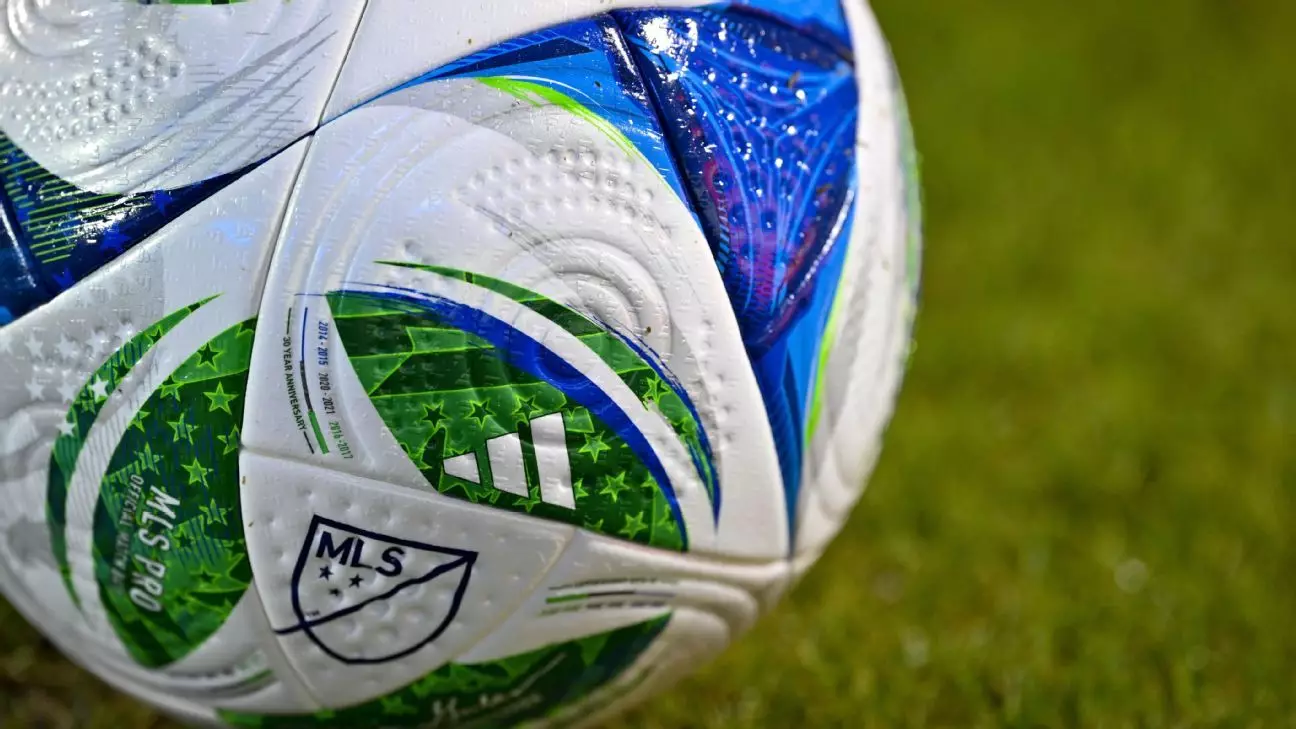The ongoing dispute between Major League Soccer (MLS) and the MLS Players Association (MLSPA) has ignited intense discussions surrounding player compensation, particularly regarding the FIFA Club World Cup prize money. This discussion is emblematic of broader trends in sports where athletes are often at odds with governing bodies over equitable compensation. The players’ struggle for recognition and fair financial rewards is increasingly capturing the attention of fans and media alike, highlighting an ongoing battle that transcends the field of play.
The Power of Player Protests
The Seattle Sounders FC players recently took a bold stand by organizing a protest at Lumen Field, wearing shirts emblazoned with “Club World Cash Grab” and “Fair Share Now.” This public display signifies a collective refusal to accept what they perceive as inadequate compensation for their hard work and sacrifices in representing their club on an international stage. With the support of the MLSPA, this protest aims to compel MLS to reevaluate its stance on player remuneration. The very act of players actively voicing their demands underlines the importance of solidarity in labor relations, especially within a sport that is increasingly commercialized. It fosters a collective identity, reinforcing that players are not just assets, but vital contributors deserving of fair rewards.
Understanding the Financial Framework
According to the original collective bargaining agreement (CBA), players are entitled to 50% of the money from external tournaments, capped at $1 million. However, MLS has proposed a significant change: offering 20% of performance-related payments for teams that win, draw, or advance in the tournament. In addition to the $1 million for participation, players could earn more through their performance in the tournament. Even though these proposals seem generous at face value, they fall short when juxtaposed against the vast financial incentives received by the league from FIFA. The players feel the current offer does not align with their contributions to the success of the league and to the participation in international competitions.
The Basis of Discontent
In a recent statement, the MLSPA characterized MLS’s proposal as “retaliatory” and lacking substance. They pointedly criticized the league for not negotiating in good faith, creating an environment of discontent among the players who should be focused on their upcoming international endeavors. It’s imperative to recognize how the players’ frustration stems not only from the monetary aspects but also from a perceived lack of respect for their work ethic. When an organization fails to acknowledge the contributions of its players adequately, it risks alienating its most valuable stakeholders. This fallout could have long-term implications for the league’s image and player morale.
The Impact of Financial Disparities
The structural disparities in compensation reflect broader issues faced by professional athletes across various sports, where governing bodies tend to prioritize profits over the welfare of players. With MLS anticipated to receive upwards of $28,650,000 from FIFA, the claim by the MLSPA that players’ share remains at barely 10% not only raises eyebrows but also questions the league’s commitment to its players. The financial windfall from FIFA presents an opportunity for MLS to foster goodwill by ensuring that players receive a fair slice of the profits they help generate.
Legal Boundaries and Collective Action
Interestingly, the CBA does not permit players to strike over issues directly associated with the current agreement, placing them in a precarious position. However, labor laws still protect their right to engage in other forms of collective action. As the dispute unfolds, the landscape of negotiations will be closely monitored by fans and observers who recognize that this could either strengthen or threaten the unity within the sport. Moreover, the players’ actions may set a precedent for how labor relations develop in MLS and other leagues in the future, shedding light on the necessity of fair player representation in negotiations regarding compensation.
A Call for Change
While the immediate focus is on the ongoing negotiations regarding the Club World Cup compensation, this situation underscores a broader imperative for change within professional sports – ensuring that athletes receive fair recognition for their contributions, especially in lucrative tournaments. The dialogue triggered by the players’ proactive stance serves as a critical reminder of the balance that must be maintained between league profits and player welfare. The outcome of these discussions not only affects the present players but also sets the tone for future generations in MLS, emphasizing the need for a paradigm shift where athletes are celebrated not just for their performances, but also for their rights and livelihoods.


Leave a Reply